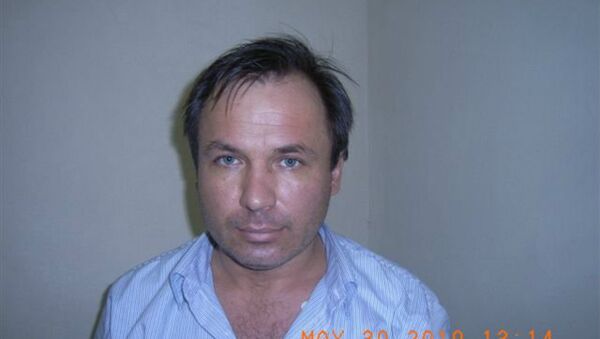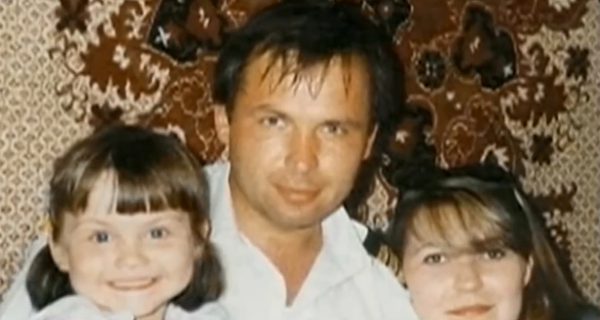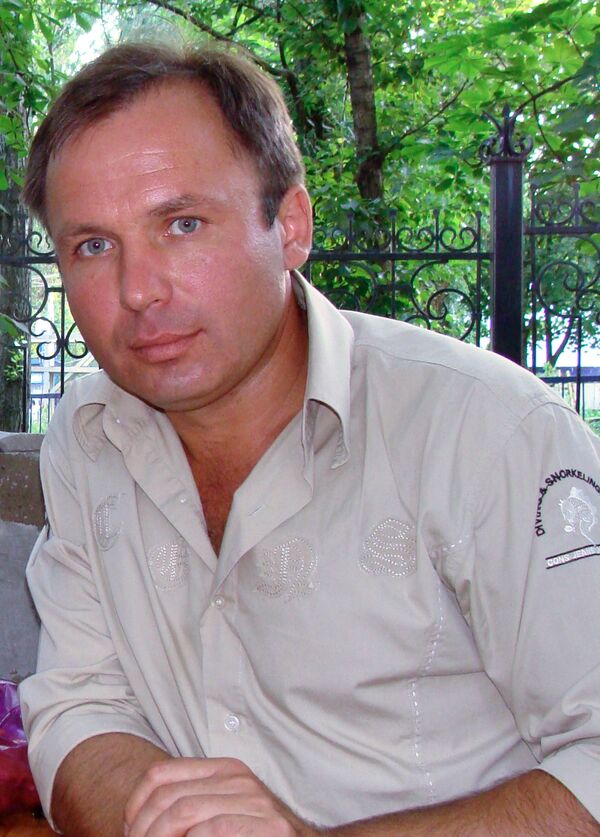NEW YORK (Sputnik) — US authorities are lying in order to cover up crimes committed by US and Liberian special forces in torturing jailed Russian pilot Konstantin Yaroshenko, he told Sputnik.
"Moreover, US authorities are continuing to lie and cover up serious crimes committed by the special forces of the United States and Liberia against me on the territory of Liberia in May 2010 and are concealing the fact of using different types of pressure on me at all levels in the US prison system after my forced arrival to the United States," Yaroshenko said in a written interview with the agency.
Yaroshenko said he became disabled due to inhumane torture he received in 2010 by the US Drug Enforcement Agency and has been placed in prison in order to hide crimes committed against him.
"After the US DEA and Liberia's NSA inhumanely tortured me in May 2010 and beyond without providing me necessary qualified medical care, after being a professional pilot in excellent health, I became incapacitated. US Authorities are doing this intentionally with the goal of physically exiling me in order to hide crimes committed against me in 2010 by US special forces from the global community," Yaroshenko said.
He said torture has been used because of his unwillingness to talk to authorities.
"All of this and much more is being done by the United States to apply pressure because of my unwillingness to speak and physically exiling me so as not to reveal all the truth about the US DEA's crimes," Yaroshenko added.
Yaroshenko Calls on Russia to Hold US Accountable for Int'l Human Rights Violations
"I'm thankful for any support from Russia. But I'd really like Russia to force the United States and Liberia to fulfill and observe the international obligations that their authorities have undertaken and make governments of the United States and Liberia accountable in international courts and tribunals for violating as a minimum the Vienna Convention on Consular Relations, the International Covenant on Civil and Political Rights, and the [UN] Convention against Torture and Other Cruel, Inhuman or Degrading Treatment or Punishment," Yaroshenko told the agency.
He said the United States often calls on other countries to comply with international treaties, but shows ambivalence when violations are committed by the United States.
"The United States demands Russia, China, North Korea, and other countries observe conventions and human rights. What about me and my rights? Am I not a human?"
Yaroshenko Says Surgery 'Poorly-Performed', US Authorities Stopped UN Doctor From Visiting Prison
Konstantin Yaroshenko complained that the surgery he received in January was performed poorly.
Yaroshenko was operated on in a Trenton, New Jersey, hospital after first complaining of health problems in 2014, three years after he was sent to the Fort Dix Prison for alleged drug trafficking.
"The operation was not performed properly," Yaroshenko said. "Soon after I recovered from the anesthetics (5-10 minutes), prison guards brought me back to prison. I had to walk about a kilometer [0.6 miles] by foot."
"The [US] prison [authorities] prohibited a UN doctor to visit me!" Yaroshenko said in a written interview.
US Prison Authorities Deny Prescribed Drugs
Jailed Russian pilot Konstantin Yaroshenko told Sputnik that US prison authorities have been withholding medicines and painkillers prescribed to him following a surgery.
"But the most outrageous thing is the prison administration, which is responsible for my health, has given me none of the medications prescribed by doctors who conducted the surgery," Yaroshenko said in a written interview.
The Russian national was prescribed painkillers and a salve based on Novocain, a local anesthetic. He was denied both the night after the surgery. The next morning, Yaroshenko was made to stand in line outside the prison's medical facility.
"I could neither sit, nor stand, nor wait," Yaroshenko wrote. "My request for help was denied. I crawled back to the barracks where I bought an ineffective med from a local shop. By afternoon, the pain had grown so unbearable that I nearly passed out."
The jail’s medical staff eventually gave him a painkiller – but again not the one that was prescribed – after inmates brought him to the health facility on a stretcher. He is still being denied post-op medication, he stressed.
Yaroshenko said this was done to "eliminate me physically" so that he would not blow the whistle on crimes committed by the US Drug Enforcement Administration (DEA).
He mentioned that the vice consul of the Russian Consulate General in New York had visited him periodically and that the consul had been to see him more than once.
"If necessary, I can call and a consular representative will come to me immediately… if the prison authorities allow," the Russian pilot noted, adding that he also has been given contact telephone numbers for Russian Embassy staff in case of an emergency.
"I’ve made use [of the Russian Embassy’s telephone contacts] once. They turned out to be very useful. I haven’t been put in solitary confinement. Both the Russian Embassy and the Consulate General help and support me in every possible way," Yaroshenko said.
Yaroshenko Doubts Likelihood of Russia-US Prisoner Swap
“Obviously, I would like to see my daughter, my wife and my mother, who I haven’t seen in five years, as soon as possible,” Yaroshenko said. “But I am sure that Russia does not have any US citizens in custody on trumped-up charges based on fabricated evidence.”
The last public prisoner exchange between the United States and Russia took place on July 9, 2010, when ten Russian nationals were deported to Russia in exchange for several US citizens, arrested in Russia on espionage charges.
Yaroshenko Doubts Success of Appeal Against US Refusal to Hold Retrial
"I think nothing will come of the appeal, as the case was fabricated from the very beginning to achieve a desired result, unrelated to the fabricated case and the drugs," Yaroshenko said.
There is no justice, democracy, honesty and openness in the United States, or at least it does not exist in this particular case, he noted.
"Most likely, the courts are implementing someone's instructions. There is no other explanation for everything what has happened and is happening to me at present — the fabrication of crimes, kidnapping, torture, lies, ignoring of facts, the tribunal, suppression of evidence and so on," Yaroshenko stressed.
Yaroshenko Says US Court Ignored 'Strong' Evidence of DEA, Prosecutors' Lies
Pilot Konstantin Yaroshenko told Sputnik that the court ignored a host of evidence that proved that US prosecutors and the drug authority had fabricated the case against him.
Writing to Sputnik from the US prison, Yaroshenko said that, "the US court ignored the plea to dismiss the case despite my strong arguments."
These included evidence that US prosecutors and agents of the Drug Enforcement Administration (DEA) had built the case specifically to target Yaroshenko, whereby they violated US and international laws.
"[The US authorities] have ignored much of the indisputable legal basis and arguments in favor of my innocence presented by my lawyer, have disregarded the arguments about multiple violations of US laws and the international obligations of the United States and about the manipulation of US laws and facts by the prosecution and the DEA," he stressed.
Yaroshenko alleges that the case was artificially assigned simply by virtue of the fact that the US agents mentioned the United States in their communications with Yaroshenko, a move which enabled them to extradite the Russian national from Liberia to the United States.
"[The US court] accepted for review, the case falsified by DEA agents… which had an artificially created US jurisdiction," he explained.
The DEA and US prosecutors also withheld a considerable amount of evidence – audio, video and phone records – that proved his innocence beyond doubt, as well as exposing lies that the US authorities had submitted under oath, Yaroshenko asserted.
Yaroshenko was detained in Liberia in 2010 during a US sting operation conducted in West Africa, and was transferred to the United States. The US authorities sentenced him to 20 years in prison on charges of smuggling cocaine.
The Russian authorities have repeatedly expressed concern over the circumstances of Yaroshenko's arrest and the poor conditions of his detention. In 2012, Moscow sent a request to the United States to transfer Yaroshenko to Russia, but the request was denied.




